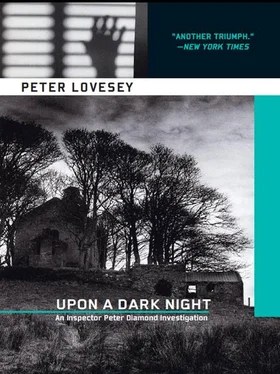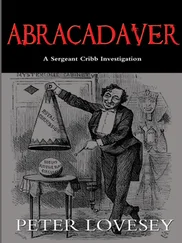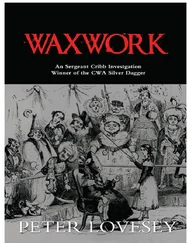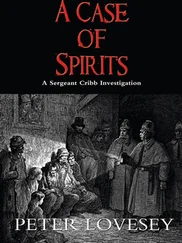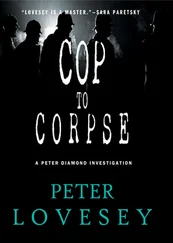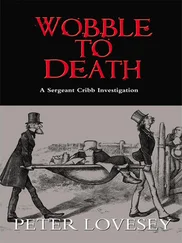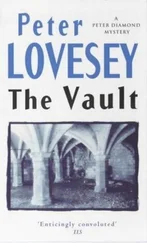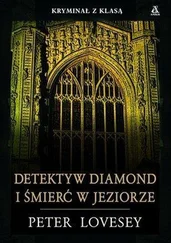‘At the party, she checked everywhere in the house she could imagine as a possible place where Rose was kept and finally she was left with the attic room. Allardyce had noticed her prowling around. He was worried about this woman’s strange behaviour. He noticed her looking at him suspiciously. He may have seen her previously, tracking his movements out on the streets of Bath. So when she went through the bedroom and up the stairs to the attic, he followed. Hildegarde heard him and opened the window and climbed out onto the roof. Fatal. He saw his chance to be rid of her. Pushed her off. There must have been a struggle, because one of her shoes came off – something Allardyce didn’t know until the body was found by the paper-boy. The shoe was still up on the roof. Too late to place it beside the body, he disposed of it. Only he knows where. I don’t suppose we’ll find it.’
Julie explained, ‘He had to get rid of it after handling it. Forensic traces.’
Diamond asked Emma, ‘Did he tell you any of this?’
She shook her head, visibly shaken at hearing her lover’s callous conduct set out in full.
Pitying her, he said, ‘Don’t be in any doubt. Your efforts to hide Rose saved her life.’
But she shook her head. ‘He’ll have killed her by now.’
They had reached the Tormarton interchange. The convoy crossed above the motorway and took the right turn that would bring them north of the village and out another mile to the Gladstone farm.
He spoke over the radio to the other cars. This was a covert operation, he informed them. They were to switch off the beacon lights immediately. They would park on the main road opposite the farm and cut their lights, and not under any circumstances drive up the track. All personnel would assemble at the near end of the track leading to the farmhouse and await instructions.
‘And now pray to God our hunch is right,’ he told Julie.
The first car drew up as instructed. Diamond ordered his own driver to stop in a position that sealed the lane. He had Emma moved to one of the other vehicles at the roadside. An officer had to be spared to guard her. That left seven, including Julie and himself.
In a subdued voice, he issued orders. They would know at once, he said, if the suspect was present in the farmhouse because his car, a red Toyota Previa, must be in the yard. If so, it was to be disabled as a precaution, and one of the officers was deputed to do this. The others would surround the house. The suspect, Diamond went on, was not known to possess a firearm, but extreme care was to be taken. This was a potential hostage situation, complicated because the hostage was a woman whose leg was in plaster.
They started along the mud track. Diamond had not gone more than a few steps when he spread his arms to signal a halt. His heart pumped harder. The Toyota was standing, as he had predicted, in the yard in front of the farmhouse.
What he had failed to predict was that the engine roared, the lights came on full beam and the car raced towards them.
Ever since she fell from the kitchen window in the St James’s Square basement and broke her ankle, Rose had been shackled, physically and mentally. The plaster was an obvious constraint; so, also, was her flawed relationship with Doreen. She was not deceived. Yes, her memory had stalled, but not her logic. She knew for certain that the whole truth about her life was being denied to her. There were times when Doreen refused point-blank to answer questions. Her actions – the daily shopping, the care for her comfort and safety – were decent, sisterly, genuine – but whenever Rose asked for more freedom, more space, Doreen was rigid and unforthcoming. She was not malicious; Rose would have detected that. But the trust was absent.
Until this evening.
Doreen’s entire manner had been different when she had arrived in the flat in Prior Park Buildings. Usually so well-defended, she seemed uneasy, as if her strength were undermined. When Rose had asked for the umpteenth time about her family, Doreen had spilled it out, confiding astonishing things to her. The truth was deeply distressing, so painful that she could appreciate why Doreen had delayed discussing it with her. Her father, an elderly farmer living alone, had recently been found dead with half his head blown away by a shotgun. Rose had visited the farm expecting to find him alive. The dreadful scene had affected her brain. In effect, she was denying her own existence to shut out the horror.
She heard all this with a sense that it must be true, but still without remembering any of it. She had no recollection of being at the farm, or walking in on the bloodbath within, or what happened after. She was left emotionally drained.
After a while, Doreen had told her other things. She had talked of the family’s unusual claim to fame, her grandfather’s discovery of the Tormarton Seax during the war. Two generations of Gladstones had resisted all requests to excavate the ground. They wanted only to be left alone to earn their living from farming. But now her father was dead, there was renewed interest in the site, even rumours that other objects had been recovered by the family. The smiling man who had tried to abduct her was almost certainly acting on the rumours.
Rose was white-knuckled thinking about that evil predator. Thank God Doreen had moved her to another flat. This place seemed even more tucked away than St James’s Square. Unless you knew it was here, masked by trees and up the steps from Prior Park Road, you would probably go straight past.
Doreen had stayed with her until late. She left about ten-thirty. Afterwards, horrid images churned in Rose’s brain and she knew she would not sleep. For distraction, she switched on the TV. An old black and white film was on, with James Mason looking incredibly boyish as an Irish gunman on the run from the police. She watched it intermittently while clearing the table. Everything she did was slowed by the crutches, but she liked to be occupied, and she had insisted Doreen left the things for her to carry out.
On about the fourth journey between kitchen and sitting-room she happened to notice two slips of paper lying on the armchair. They must have fallen out of Doreen’s pocket when she took out a tissue. At a glance they were only shop receipts. She left them there; when you depend on crutches, there is a limit to the number of things you stoop to pick up.
She finished washing up and went back to the armchair. The film was reaching a climax. The girlfriend had found James Mason in the snow surrounded by armed police. She would surely draw their gunfire on to both of them.
Involved in the drama, Rose gripped the underside of her thigh and her hand came into contact with one of those scraps of paper. When the film ended, Doreen’s receipts were lying in small pieces in her lap. While watching the last tragic scene she must have been shredding them. Stupid.
They didn’t belong to her. They might have been needed for some reason.
To make sure they were only receipts, she spread the pieces on the table and put them together, jigsaw fashion. Astra Taxis, the first said, From: Bath Stn. To: St Jas Squ. + waiting, with thanks £30. She had seen the transaction herself, watched the receipt being handed across after the drive from Harmer House to St James’s Square. Her short-term memory couldn’t be faulted.
The other was a credit-card slip for the lunch at Jolly’s. Doreen had settled that one at the till.
She stared at the name.
But it ought to read Doreen Jenkins.
The date was the correct one. Two lunches, it said. The name of the card-holder was Mrs Emma Treadwell.
Emma?
Frowning, she stared at the name for some time. There was only one conclusion. Her so-called stepsister was caught out. Here was proof that she had been lying about her real identity.
Читать дальше
